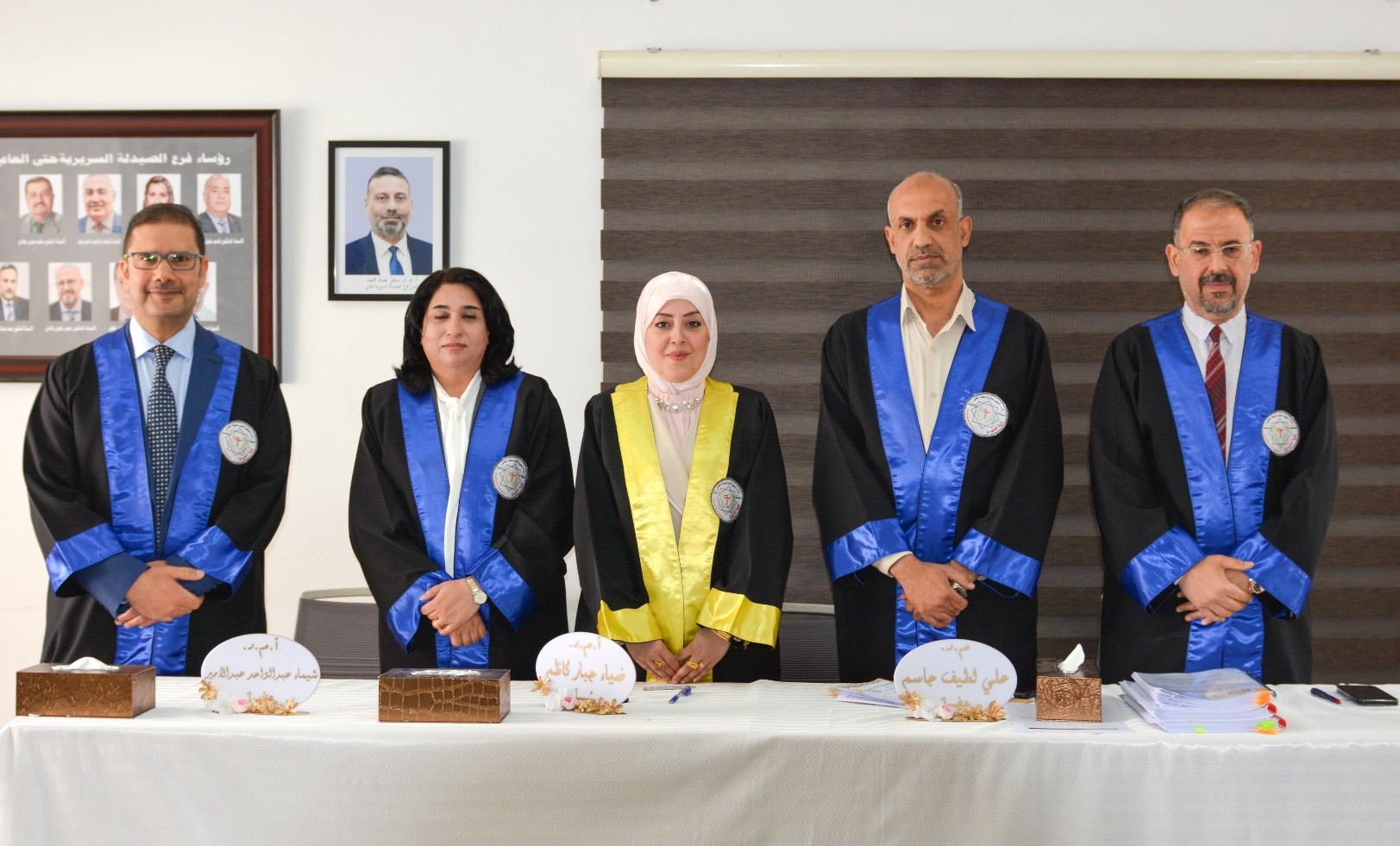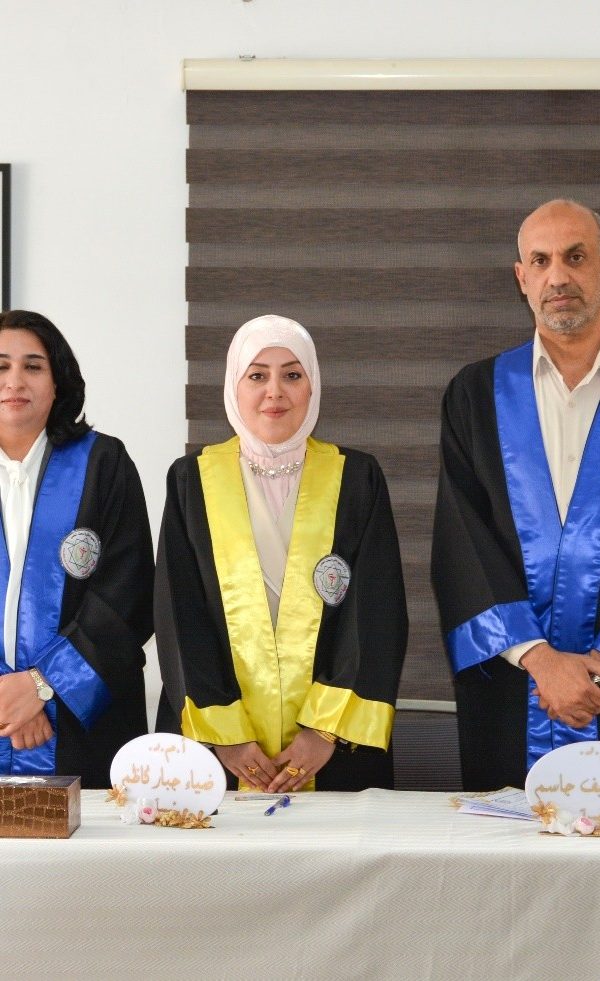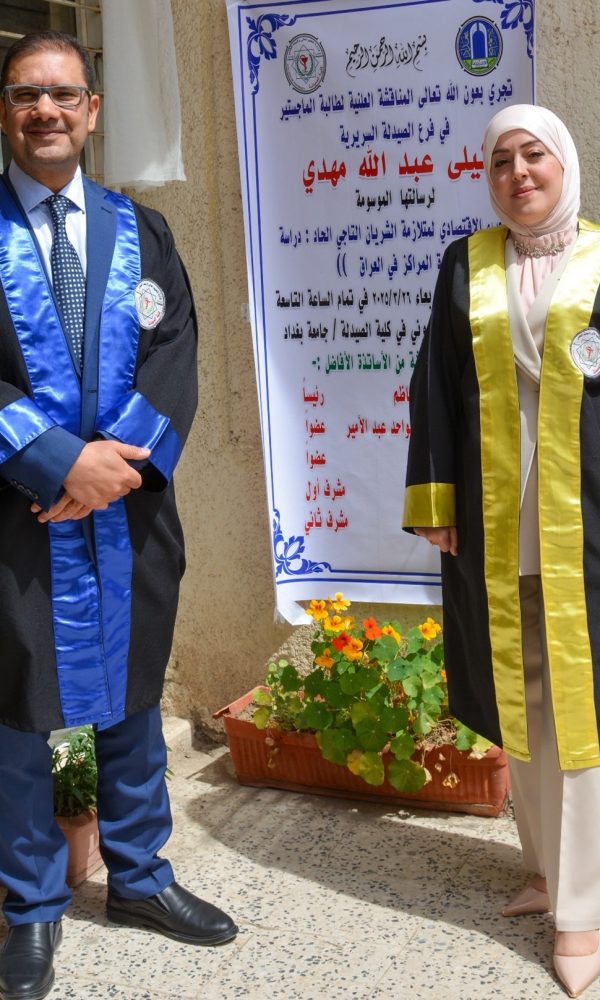The College of Pharmacy discussed the MSc thesis entitled “Economic Burden of Acute Coronary Syndrome: A Multi-Center Pharmacoeconomic study in Iraq” by the student Layla Abdullah Mahdi and her supervisor, Assistant prof. Dr. Ali Azeez Ali in the Clinical Pharmacy Department, and Co-advisor Assist. Prof. Dr. Cole G Chapman from University of Iowa College of Pharmacy, USA.The study aimed to determine the direct medical costs associated with Acute Coronary Syndrome (ACS) treatment (medical and surgical interventions) from both governmental (Ministry of Health (MOH)) and patient (private sector) perspectives within the context of hospitalization.The study included ACS patients admitting to one of three hospitals: Ibn-Al-Bitar specialized cardiac center and two private hospitals in Baghdad, Iraq. The data were collected from December 2023 through July 2024. In the public department, the study data were extracted from patient medical records, healthcare providers, and hospital administration. Data were collected using the micro-costing bottom-up approach. In the private department/ hospital, patients’ fees were extracted from hospital bills. The cost of ACS treatment was calculated as the cost of the entire hospital stay during which the procedure(s) had been performed. The results showed treatment costs of 200 patients with ACS during hospitalization (110 patients having CAA and 90 patients having CABG) in one of three settings: the public and private departments of the government hospital or the private hospital. The average cost of ACS treatment during hospitalization for a single patient in the public department was 1,163,071 Iraqi dinars (IQD) ($881). The patients admitted to the private department for CAA paid 817,116 IQD ($ 619) per patient, on average, while each patient paid 2,690,000 IQD ($ 2,038), on average, to the private hospital. For patients having CABG, the average cost of treatment during hospitalization for a single patient in the public department was 6,221,014 IQD ($ 4,713). On the other hand, the patients who were admitted to the private department paid 5,231,500 IQD ($3,963) per patient, on average, while a single patient paid 12,488,333 IQD ($9,461) on average to the private hospital for CABG hospitalization.This study developed a new approach to calculating cost-of-illness for health systems following the Beveridge Health Model and does not have specific fees for each service. ACS requires high-cost medical interventions covered by the Iraqi MOH in the public department. In the private department, the patients pay fees for treatment, and MOH still provides subsidized prices to reduce the actual costs. Transparent reporting of ACS treatment expenses to health officials is crucial for securing adequate budgetary allocations.The study recommended broadly disseminating cost-of-illness (COI) findings among policymakers, healthcare professionals, and the public. This evidence should then guide resource allocation, health program prioritization, and the development of cost-effective interventions. The study also recommended initiating foundational COI studies on prevalent diseases throughout Iraq. These initial studies will establish a baseline for understanding the economic impact of various health conditions, thereby informing future healthcare planning and resource allocation.





